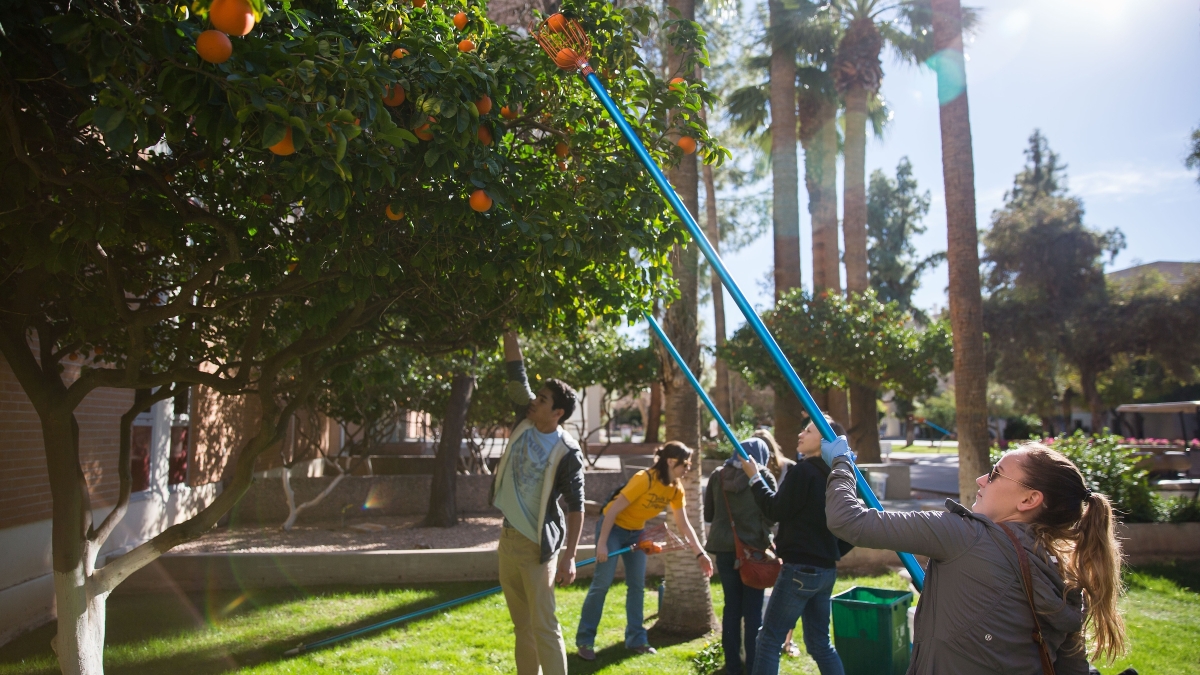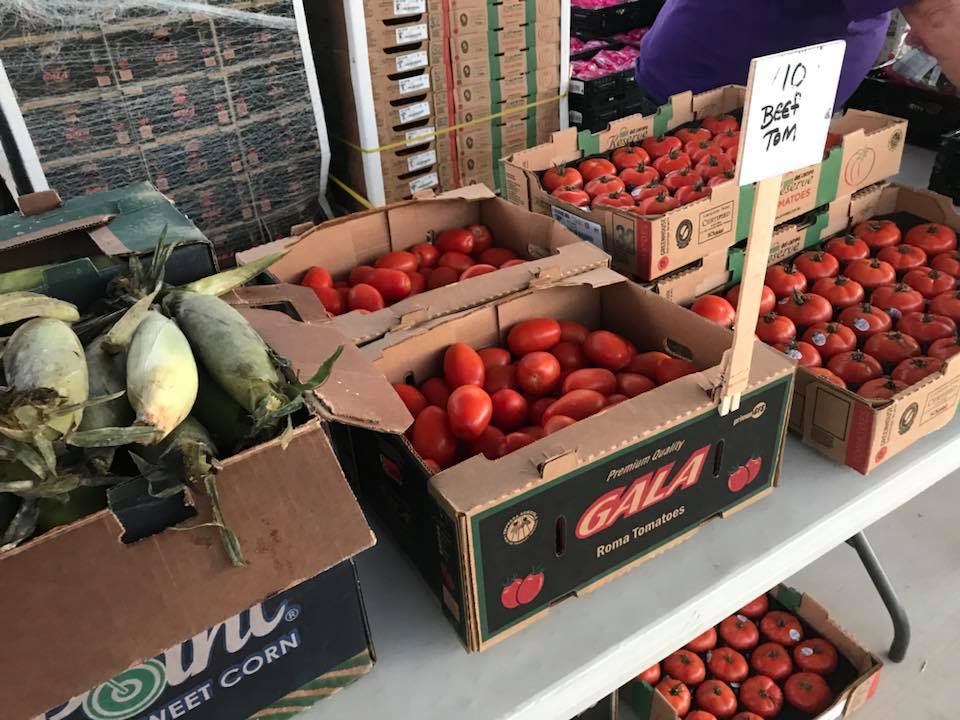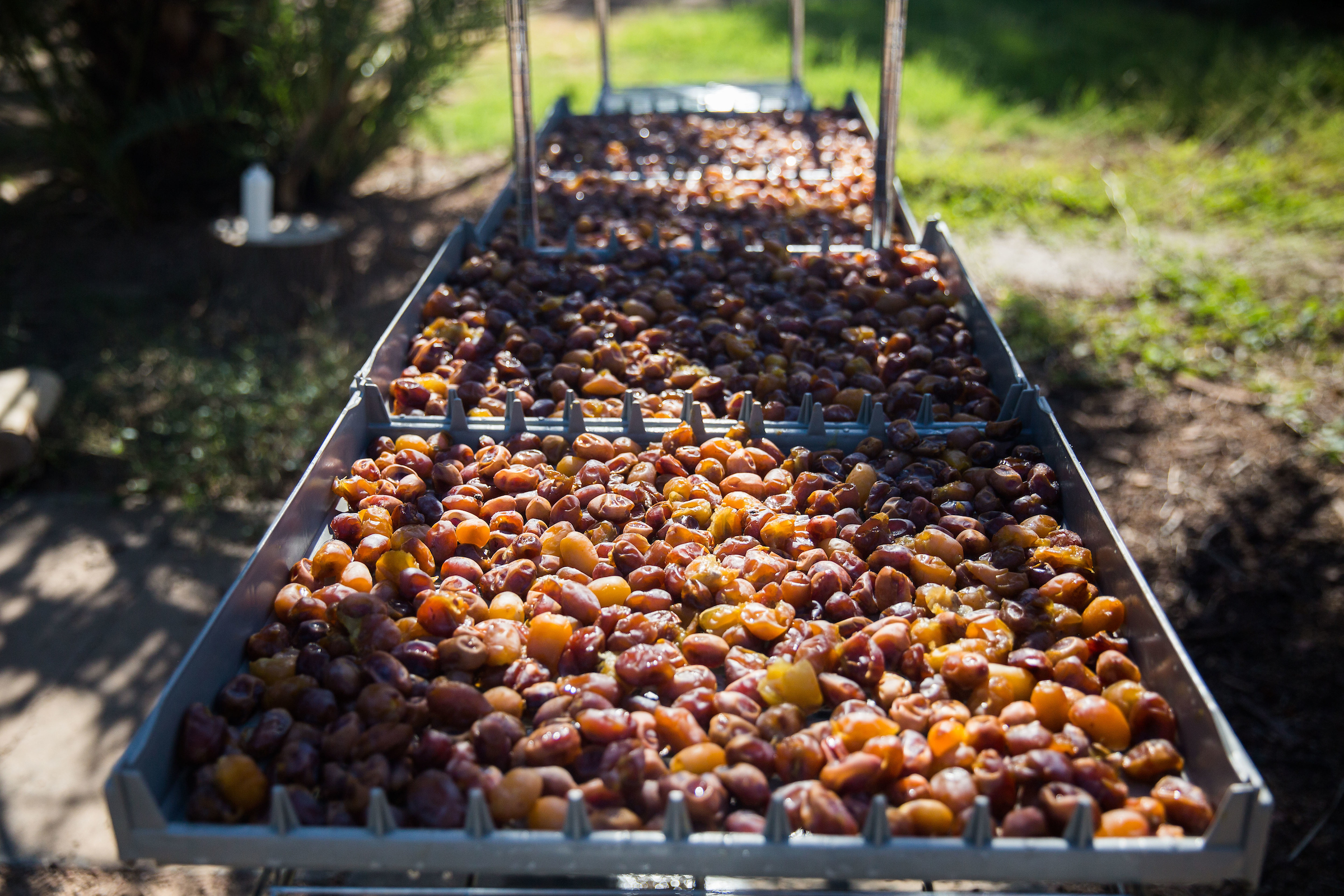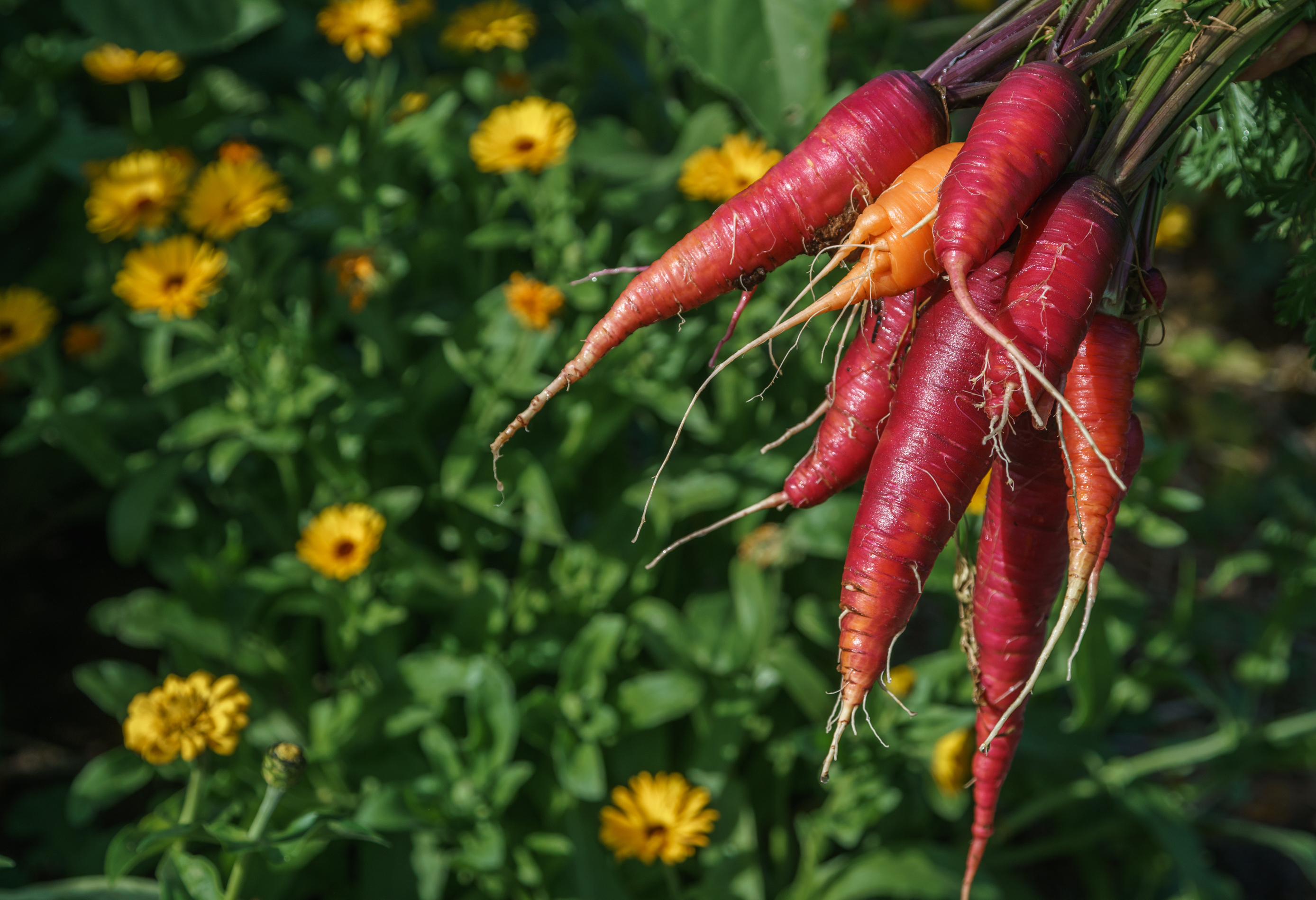Three Arizona State University programs are reconnecting students, faculty and staff with the origins of the food they eat.
Through events and volunteering opportunities, the Polytechnic campus community garden, the Campus Harvest and the ASU Produce on Wheels Without Waste program are working toward the university's 2021 goal to engage the ASU community with rescued, or locally grown and harvested, nutritious food.
Produce on Wheels Without Waste
Photo courtesy of Produce On Wheels - With Out Waste
Changemaker Central at ASU partners with Borderlands Food Bank to bring their Produce on Wheels Without Waste, or P.O.W.W.O.W. to Arizona State University.
P.O.W.W.O.W sells fresh produce destined to be landfilled by distributors by hosting markets where anyone can buy 60 pounds of produce for just $10. The markets are the third Saturday of the month, from 8 to 11 a.m. November to March, and 7 to 10 a.m. April to May. Showcased produce is announced on Thursdays in the P.O.W.W.O.W. newsletter.
“Anyone from ASU who’s interested in volunteering is encouraged to sign up on ASU VolunteerMatch. Community members interested in volunteering can sign up through Borderlands,” said Kendon Jung, Changemaker Central student-involvement coordinator.
Campus Harvest
Photo by Deanna Dent/ASU Now
Campus Harvest is another way the ASU community can be engaged with food on their campus. Dates are harvested and pollinated on the Polytechnic and Tempe campuses, and sour Seville oranges are harvested in the spring.
"Earlier this spring, volunteers harvested oranges on the Tempe campus and gave away 10-pound bags at P.O.W.W.O.W.," said Deborah Thirkhill, Campus Harvest program coordinator. "The sour orange juice is used in DevilAde and other recipes. Tempe campus Sun Devil Dining locations also sell these products."
Anyone may volunteer to pollinate the dates in March and harvest in the fall. View upcoming opportunities on ASU Events.
Polytechnic campus community garden
Photo courtesy ASU Business and Finance
At the Polytechnic campus, Susan Norton, University Sustainability Practices program manager, leads the Poly Garden.
“There are so many opportunities to eat the produce, give back with community service or even sign up for a plot,” Norton said.
Pop-up markets on the Polytechnic campus sell fresh flowers and in-season vegetables from the garden. Anyone who wants to sign up for a plot or volunteer should contact Susan Norton.
“ASU’s design aspirations call for a socially embedded university with mutually beneficial community partnerships,” said Mick Dalrymple, USP director. “These events and programs all leverage ASU’s place and use its unique resources and position to reconnect people with the sources of the meals on their table.”
For more information, visit the university’s sustainability collaborative action webpage.
More Environment and sustainability

ASU launches groundbreaking partnership to address water insecurity in Arizona
For the past two years, Arizona has contended with record-breaking heat and over 1,000 heat-related deaths in Maricopa County alone. However, the county is just a microcosm of the rest of the…
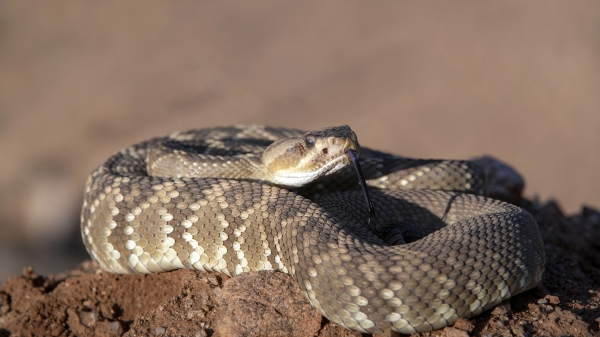
There's a rattlesnake in your backyard: What do you do?
A snake slithers onto your back porch one sunny morning.What do you do?Call a relocation expert, grab a shovel and try to kill the reptile, or do nothing?That moral quandary is at the center of…

Pettinger to guide Southwest Sustainability Innovation Engine's sustainable technologies to market
There’s a lot of daylight between coming up with a good idea and turning that idea into something people can use.Katie Pettinger is here to help bridge that considerable gap. As the new chief…
